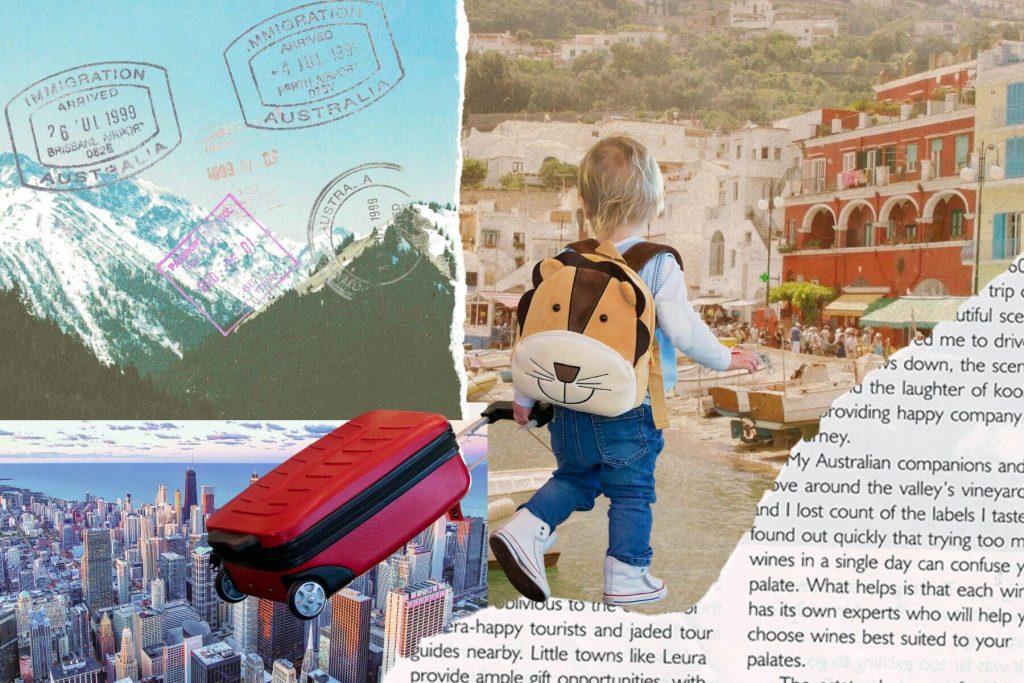Can kids learn more outside of the classroom? In this month’s “Dear Eugene,” we ask experts to weigh in on whether it is better to have your kid skip school to travel.
Inspired by our intrepid founder, Eugene Fodor, Dear Eugene is a monthly series in which we invite readers to ask us their top travel questions. Each month, we’ll tap travel experts to answer your questions with the hopes of demystifying the more complicated parts of travel. Send your questions to [email protected] for a chance to have them answered in a future story.
Dear Eugene, I want to plan a three-week vacation with my kid to Europe this fall, but my partner is concerned about how much school our 8-year-old son would miss. I’m in the camp that three weeks of travel will teach our son more about the world than sitting in a 3rd grade classroom, but my partner disagrees and believes ‘skipping school to travel’ is sending our son the wrong message about responsibility and commitment. Who is right? Is it worth having our child miss school in order to travel?
This is a very relatable question for travel-loving families everywhere. Besides sounding completely delightful, three weeks in Europe will come with its own unique learning opportunities, including languages, histories, and cuisines. On the other hand, missing school might have repercussions for your child’s education, and the disruption to daily routines can take a week to recover from on the back end, especially when you factor in jet lag.
At first glance, this seems like a conundrum that doesn’t have an obvious compromise, but with some careful planning, you might be able to take the extended Euro adventure without your child falling behind academically.
Continue Reading Article After Our Video
Recommended Fodor’s Video
The Case for Travel
To help your family with this decision, let’s examine the case for travel (the benefits of remaining in traditional school are obvious, so there’s no need to focus on those). In recent years, concepts like “world schooling” have gained traction, with some families choosing to prioritize travel-based learning over a conventional classroom setting. While you’re only talking about a three-week trip, not rethinking your entire educational ethos, these families can vouch for how effectively travel enhances the absorption of new information.
When Danish entrepreneur Nikolaj Astrup Madsen founded the Traveling Village— a community of 20 families from across the globe, traveling together for four months across multiple countries—he envisioned an environment where children learn through free play and exposure to new cultures and experiences. Currently in the midst of its second trip, the Traveling Village experiment appears to have done just that.
“Something we see a lot with Traveling Village is that kids learn languages super-fast when just playing and being in a group of other kids,” he explains. “But traveling provides so many learning opportunities for kids that are difficult to get at home or at school, sometimes simply because your senses are more awake because everything is new.”
Everything from foreign license plates to new foods creates teachable moments, according to Astrup Madsen, and meeting people from other cultures builds their soft skills, such as empathy and perspective-taking.
Learning on the Road vs. In the Classroom
Michele Borba, Ed.D., an educational psychologist and author of THRIVERS, believes traveling is a great way to educate children about the world, but suggests you meet with your son’s teachers before booking anything.
“Is the child academically and socially ready to be removed from class for three weeks? Is the child on-task academically at school? Are there any concerns about leaving school for three weeks?” she recommends asking.
Your best bet is to request that the teacher provide academic assignments in advance. That way, you can build some structured learning time into the itinerary, ensuring he’s not missing anything important from the curriculum.
And, of course, you should consult your son.
“The child should be eager and willing to travel and recognize that he will miss three weeks. What is his understanding of the time commitment and his willingness to do the assignments each day as he travels?” Dr. Borba asks.
Keep It Simple
Three weeks is a lovely chunk of time, and it’s probably tempting to pack as much in as possible, but, advises Astrup Madsen, you’ll be better off keeping the trip simple and geared towards your child.
“That sometimes means scaling back on the number of daily activities and staying put in one location for longer,” he explains, “Often, parents want to go and see so many things, and learn about churches, go on hikes, and so on, but if you can provide a setup with a bit of local immersion, some kids from other cultures and some space for free play, I’m 100% sure there will be so much learning.”
The takeaway: If you keep the itinerary simple and focus on slow, immersive travel with some built-in time for schoolwork, your family can enjoy a three-week vacation with plenty of learning and a whole heap of memories.

